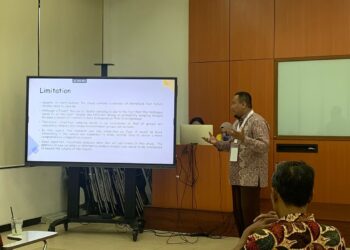Amid increasing public attention to sustainability issues, Environmental, Social, and Governance (ESG) has become a crucial element in corporate business strategy. ESG not only serves as an instrument to improve environmental and social performance but is also key to building transparency and investor confidence. In a global landscape that increasingly emphasizes sustainability, investors are now looking for companies that can demonstrate strong financial performance but are also socially and environmentally responsible.
Why is ESG Reporting Important?
ESG reporting can be defined as the disclosure of information covering an organisation’s operations and risks in three sectors: environmental management, social responsibility, and corporate governance to the public, including stakeholders such as investors, consumers, and communities. The purpose of ESG reporting is to provide a clear picture of how the company operates in the context of sustainability in terms of waste management, carbon emissions, employee welfare, and good governance practices.
One of the main reasons for the importance of ESG reporting is the increasing awareness of investors about a company’s transparency. Investors, especially those focused on sustainable investing, want to ensure that their funds are managed by companies that are responsible and proactive in managing ESG risks. ESG reporting is also important to investors as it can help them make more informed investment decisions. ESG reports can also provide a range of information for investors to gauge risk, thereby increasing potential returns over the long term.
Furthermore, ESG reports also indicate the level of transparency of a company. Transparency is one of the key pillars in attracting and maintaining investor confidence. In the ESG context, transparency not only means publishing attractive annual reports but also providing accurate, reliable and relevant information on the impact of the company’s operations on the environment and society. When companies are transparent in presenting information on how they are addressing ESG challenges and opportunities, investors can see their commitment to addressing sustainability issues, which, in turn, increases their trust.
Many investors now consider transparent ESG reporting practices as a key indicator of good governance. Companies that fail to report or provide adequate information on their ESG performance are often perceived as higher risk, both operationally and reputationally, which will influence investors’ decisions. Conversely, companies that are proactive and transparent in ESG reporting are often seen as more stable and durable entities, which in turn attracts more investors.
Attracting Investors with a Focus on Sustainability Issues
In an era of increasing public awareness of climate change and social issues, more and more investors are shifting their portfolios to companies that have a strong commitment to ESG principles. Good ESG reporting can also be an important instrument in attracting investors. This is because a good and comprehensive ESG report allows investors to analyze the extent to which companies have implemented sustainability practices in their operations.
A comprehensive and high-quality ESG report can also show investors that the company is not only concerned with profits but also with broader social and environmental impacts. This can be attractive, especially for institutional investors who are increasingly paying attention to sustainability in their portfolios. According to a report from the Global Sustainable Investment Alliance (GSIA), sustainable investing has grown significantly in recent years, with many investors seeking companies that have solid ESG performance.
Challenges in ESG Reporting
Despite its importance, ESG reporting also faces various challenges. One of the main challenges is the inconsistency in reporting standards. Currently, there is no globally recognized universal standard for ESG reporting, resulting in differences in data quality and comparability from one company to another. This can make it difficult for investors to evaluate and compare ESG performance between companies.
In addition, some companies may be reluctant to report their ESG data for fear that it will negatively impact their reputation if their performance turns out to be poor. On the flip side, however, a lack of transparency can actually increase a company’s risk of loss, as investors may see this as a sign of a company’s lack of commitment to sustainability.
To address this challenge, companies need to invest in better reporting systems and follow recognized reporting frameworks such as the Global Reporting Initiative (GRI), Sustainability Accounting Standards Board (SASB), or Task Force on Climate-related Financial Disclosures (TCFD). The use of these recognized standards can help improve the quality, consistency and comparability of ESG reports, ultimately increasing investor confidence.
ESG reporting is not just a fad but an increasingly urgent necessity for companies that want to exist in the sustainability era. By increasing transparency through ESG reporting, companies can build trust and attract investors who are increasingly concerned about sustainability. While there are challenges in implementation, the long-term benefits of transparent ESG reporting are significant. Companies that successfully manage and report their ESG performance well will attract more investors and contribute to a more sustainable future for the world.












